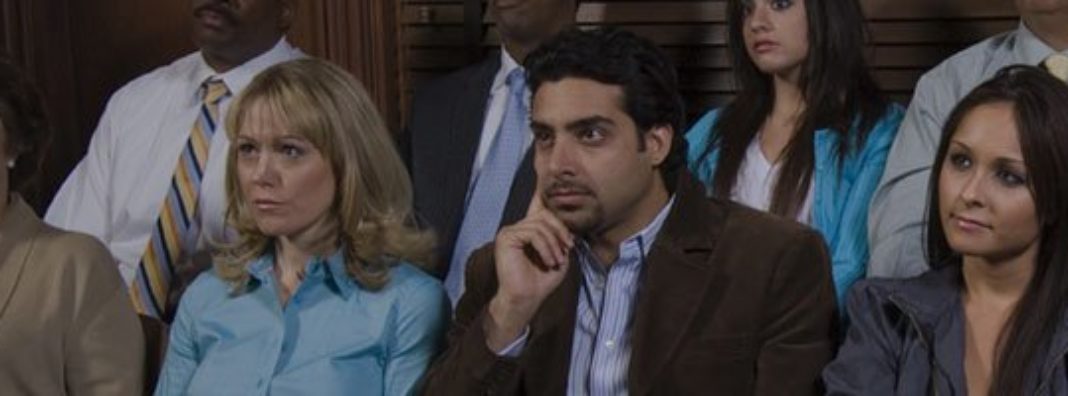
Every year, millions of Americans file into courthouses for jury duty. They form a critical constitutional pillar of the criminal justice system — an unbiased trial by a jury of one’s peers. As they await their assignments, many potential jurors also must decide whether to donate their jury pay to charity. Far from being a mundane, inconsequential choice, the state-mandated opportunity to give to charity can alter decisions on whether to find a defendant guilty.
Since 1995, the Texas legislature has required courts to provide all jurors with the opportunity to donate their pay to the state’s crime victims fund. Administered by the Texas attorney general, this fund pays expenses of victims of violent crime. Today, Texas jurors also must have the option to donate to funds for child welfare, for victims of domestic violence and more.
Other states follow Texas’ example. Maryland’s “Generous Jurors Program” gives jurors in some counties the option to donate their pay to services for foster and children’s programs. In Florida, courts can allow jurors to donate their pay to guardian ad litem programs and domestic violence shelters. In Nevada, juror donations can go to government agencies that help abused and neglected children.
On the surface, such donation opportunities are noble efforts to fund worthwhile causes connected to the legal system. However, courts often present potential jurors with the option to donate before they are even selected for a jury, and herein lies the problem.
Presenting jurors, who are intended to impartially evaluate evidence, with an opportunity to financially assist victims of criminal acts may bias their decision-making during deliberations. For example, donating money to crime victims may bring those victims into a clearer view and may implicitly tie jurors financially to those victims of crime. During the trials these jurors may then unintentionally be more inclined to view the defendant, who is presumed innocent, in a negative light.
The question then becomes is the outcome of jurors who are asked to donate before the trial different than those who are asked to donate after the trial? Do jurors change their behavior by these donation opportunities?
In our new study, we showed that priming jurors with a well-intentioned donation opportunity before judging others guilty or not guilty, is also biasing jurors’ assessments of guilt or innocence.
We conducted laboratory experiments at Baylor University to find out whether providing jurors with these donation opportunities directly affects their decision-making. Specifically, jurors were tasked with determining the guilt of participants who had been presented with the opportunity to take money from another participant. Participants who took money were often “accused” of doing so, and participants who did not take money were less frequently “accused.” Jurors in our study evaluated the available evidence, both exculpatory and inculpatory, and voted on a verdict of guilt. To determine the effect of priming these jurors, some were given the opportunity to donate their pay before they considered any cases, while others were provided with this opportunity at the end of the experiment.
There were differences in jurors’ decisions, depending on their sex and when the jurors received their donation cards. For example, men were more likely to find a defendant guilty when asked to donate their jury pay before trial (as opposed to after trial). Women, on the other hand, were somewhat less likely to find a defendant guilty when asked to donate before trial.
Criminal trials depend on juries free from biases. Before tinkering with our criminal justice system or other sensitive institutions, legislators must recognize those seemingly benign policies can have unintended side effects. Thankfully, in the case of jury pay donation policies, the solution is easy: make donation requests after jury service has been completed.


 Washington Examiner
Washington Examiner